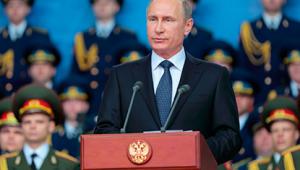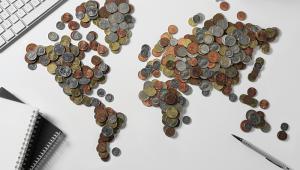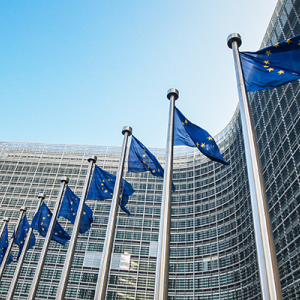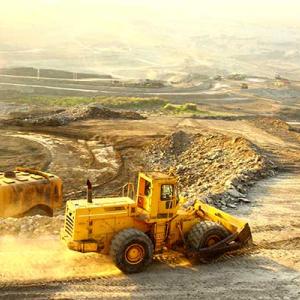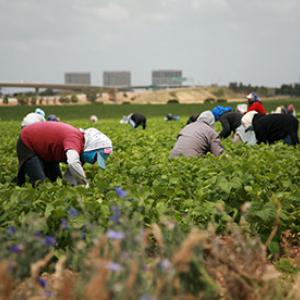vlad-putin-shutterstock_288985085.jpg
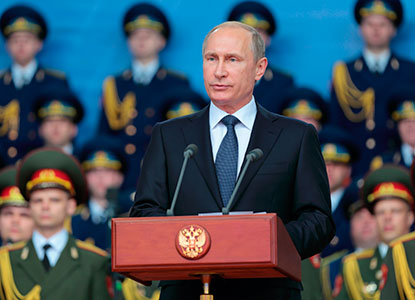
Russian president Vladimir Putin. Image © Shutterstock
The central bank bought millions of rubles after the currency fell to 89.60 against the US dollar – an all-time low – and also loosened its requirements for collateral when lending to banks to boost their liquidity.
Russia’s stock exchange was closed until midday on Thursday while officials set up the rescue plan to protect the financial system.
“The Bank of Russia will use all necessary instruments to maintain the financial stability and business continuity of financial institutions,” the bank said.
“The Bank of Russia and financial institutions have specific action plans for any developments.”
Russian troops entered Ukraine on Thursday morning, and governments including the US, UK and European Union swiftly introduced sanctions, including freezing assets, bans of national airline Aeroflot and measures targeting high-profile individuals.
US investors will be banned from buying Russian bonds after 1 March, and Russia will not be able to use European markets to refinance its debt; Japan is reportedly planning similar prohibitions.
This will limit Russia’s sources of finance, and force it to rely much more on its domestic market, but the country has built up large reserves since 2015 so could finance spending by using them.
Ukrainian president Volodymyr Zelenskyy, who introduced a state of martial law shortly after the invasion, called on Friday for European powers to do more.
“Europe has sufficient force to stop this aggression,” he said in an address.
“Can we expect more from European states? Cancellation of visas for Russians? Cutting off [Russia from international payments network] Swift? Full isolation of Russia? Recalling ambassadors? Oil embargo? Closure of the sky?
“Today, all this should be on the table, because it is a threat to us, all of us, all of Europe. You can still stop aggression. We must act without delay.”
Last week rating agency S&P Global published a report claiming severe sanctions could trigger a rating cut, particularly broad-based action against the banking sector and exclusion from SWIFT.
The invasion has also reportedly complicated the European Central Bank’s route out of the extraordinary monetary policy it has employed amid Covid-19.
High energy costs for the EU, which relies on Russia for nearly 40% of its natural gas, as well as impacts on trade and the financial sector, are likely to increase inflation, according to ECB policymaker Yannis Stournaras.
But he told news agency Reuters on Thursday in the medium term it could prove deflationary, reducing the justification for raising interest rates.

